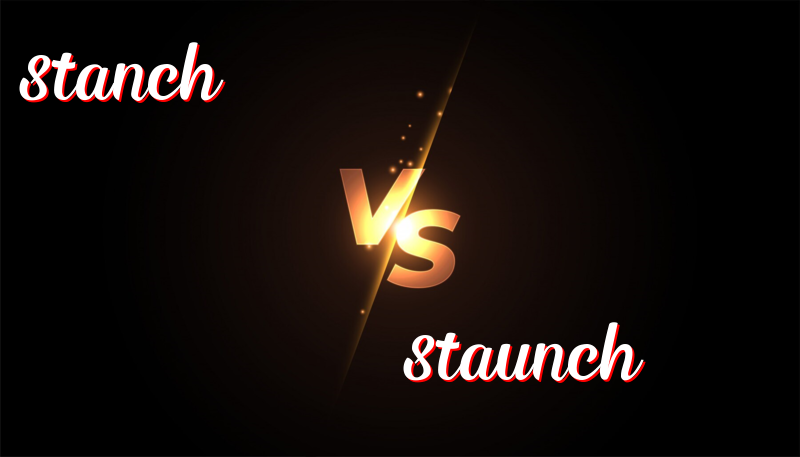Understanding the Difference Between Stanch and Staunch
March 26, 2025
Difference Between “Stanch” and “Staunch”
The words “stanch” and “staunch” are very similar, but they have different meanings and uses. Let’s learn more about them!
History of the Words
- Stanch: Comes from Old French “estancher” which means “to stop liquid”.
- Staunch: Comes from the word “stanch” but now has a different meaning, often used to describe loyalty.
How to Use “Stanch” and “Staunch”
Stanch is a verb. We use “stanch” when we want to say “stop something, especially liquid, from flowing”.
Staunch is an adjective. We use “staunch” to describe someone who is very loyal or firm in their beliefs.
Examples of “Stanch” in Sentences
- The nurse tried to stanch the bleeding with a bandage.
- He used a towel to stanch the flow of water from the pipe.
- The doctor worked quickly to stanch the wound.
- They did their best to stanch the flow of tears.
- He helped to stanch the leaking roof with some fabric.
Examples of “Staunch” in Sentences
- She is a staunch friend who always supports me.
- He is a staunch ally to our group.
- My grandfather was a staunch believer in honesty.
- The team had staunch fans who cheered them on.
- Her staunch loyalty to the company is well-known.
Trick to Remember the Difference
Here is an easy way to remember:
- Stanch: Think of the “ch” in “Stanch” as stopping a liquid certainly.
- Staunch: Think of the “auch” in “Staunch” as someone who says “Aw, you can always count on me!”
Summary of Usage
In summary, use “stanch” when talking about stopping liquids, and use “staunch” when describing firmness in belief or loyalty. They may sound similar, but they are used differently in English!

Leave a Reply
You must be logged in to post a comment.